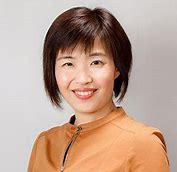Research Experience
-
2019.04-Now
Waseda University Faculty of Education and Integrated Arts and Sciences
-
2017.04-2019.03
The University of Tokyo
-
2016.05-2017.03
The National Center for University Entrance Examinations Research and Development
-
2012.10-2016.04
The National Center for University Entrance Examinations Research and Development
-
2007.10-2012.09
The National Center for University Entrance Examinations Research and Development
-
2006.04-2007.09
株式会社リクルート ワークス研究所 研究員

